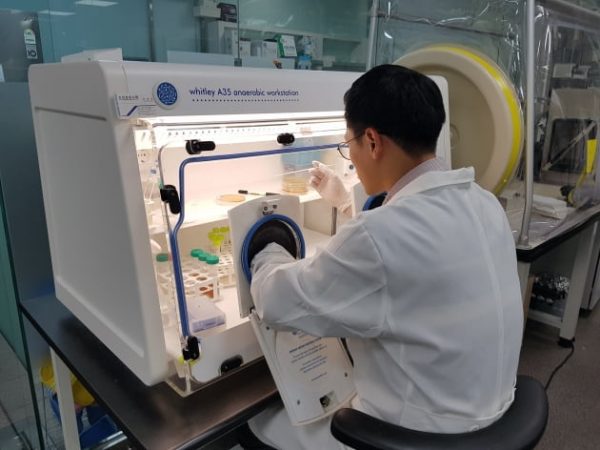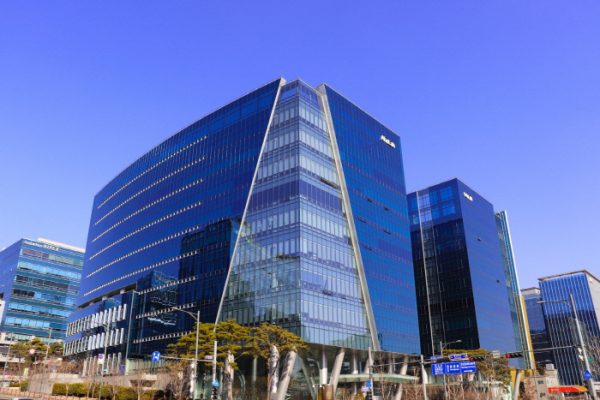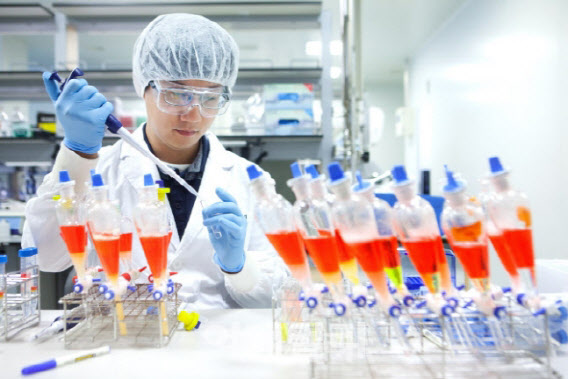-Kakao Mobility to demonstrate Korea's first 80km long-distance platooning

Kakao Mobility announced its development achievements of a platooning service platform through a national project and said that it would be the first in Korea to demonstrate long-distance platooning in the 80km section.
Kakao Mobility announced the research achievements of “V2X-based platooning service platform development” by participating in the “Final Performance Presentation of Autonomous Cooperative Platooning Technology Development for Trucks” held by the Ministry of Land, Infrastructure and Transport on September 9.
Following the successful test run on the 8km section from Seoyeoju IC to Yeoju JCT last year, the demonstration will be conducted in the 80km section of the national highways Yeongdong Expressway and Jungbu Inland Expressway.
The technological difficulty has also been raised. The number of vehicles will be increased from three to four, and the operating speed will be increased from 80 km/h to 90 km/h. The vehicle-to-vehicle distance will be reduced from 15.6 m to 12.5 m, and more sophisticated platooning technology will be introduced.
Korea Expressway Corporation has been operating a national project to secure platoon driving technology for four years from 2018 with support from the Ministry of Land, Infrastructure and Transport. Kakao Mobility is participating with Hyundai Motor Company, Kookmin University, and Ajou University to conduct R&D related to the development of an operating service platform that connects vehicles participating in platooning and the implementation of a logistics transport service model for technology commercialization.
-Genome & Company to target the US CMO market

Genome & Company, a new drug development company that utilizes microbiomes, is entering the microbiome drug contract manufacturing (or CMO) market. It is a stepping stone for not only preparing a profit base, but also for entering the global market starting with the United States.
Genome & Company announced on Septembe 8 that it has acquired a 60% stake in the US CMO company List Labs for $27 million (or about 31.4 billion won). List Lab is a bio company headquartered in San Jose, US, and has been in the CMO business of microbiomes and bacteria toxins for 43 years.
The current production scale of List Labs is at a level that can produce reagents for use in clinical trials phases 1 and 2. The annual sales are around 100 billion won. Genome & Company is planning to expand its production capacity to a level that can conduct phase 3 trials and manufacture finished drugs by 2024. CEO Bae said, "The fund for expansion will come from List Labs. Genome & Company will not do a capital increase.”
Genome & Company acquired List Lab is to speed up its entry into the US market. Currently, most microbiome CMO companies are located in the Netherlands, Australia and France, where dairy farming is well developed. Because microbiome treatment uses live bacteria, the distance the drug moves is directly related to its quality. The shorter the distance traveled, the greater the competitiveness.
-AhnLab applies QRNG technology to cryptographic module to increase unpredictability

AhnLab announced on September 8 that it has obtained a Korea Cryptographic Module Validation Program (KCMVP) with ACM 1.0, a cryptographic module that adds a quantum random number generator (or QRNG) as a noise source for the first time in Korea.
KCMVP is a system that verifies the safety and implementation suitability of cryptographic modules to protect important information among data used in public information and communications networks. The National Security Research Institute and the Korea Internet & Security Agency (KISA) are in charge of testing and evaluation, and National Intelligence Service conducts verification based on the evaluation results. Cryptographic modules that have passed verification are listed in the certified cryptographic modules list from National Intelligence Service.
AhnLab completed KCMVP once again by adding QRNG from the Korean security startup EYL as a noise source for random number generation to ACM 1.0 which already has KCMVP. The noise source is an important value that becomes a material for random number generation, and the unpredictability of the random number depends on the noise source.
By adding the noise source, ACM 1.0 has increased randomness (random number sequence without statistical bias) and unpredictability (the next number cannot be predicted from the past number sequence) of the random number sequence created in the environment where EYL’s QRNG is equipped. Through this, the security of the encryption operation using the random number was further strengthened.
AhnLab has been actively promoting quantum cryptography communication technology in addition to the acquisition of KCMVP. AhnLab is currently developing a quantum cryptographic communication-based virtual private network (or VPN) technology using the quantum random number generation function with the the KT Convergence Technology Institute Infrastructure Research Center, and the commercialization of PoC (or Proof of Concept) is also in the final stage. It will soon introduce a new product line by applying this to the next-generation firewall “AhnLab TrusGuard.”
-SK Bioscience holds mRNA Vaccine Patent Analysis Briefing Session

The Korean Intellectual Property Office (KIPO) held an “mRNA Vaccine Patent Analysis Briefing Session” at SK Bioscience, a vaccine developer located in Seongnam, Gyeonggi Province, on September 9.
At the briefing session, major technologies by mRNA vaccine production processes, key patents, examples, and disputes were announced. In addition to the mRNA patent analysis, the results of patent analysis on non-mRNA vaccines and raw materials were also introduced.
Following the briefing, the KIPO Deputy Director Kim Yong-sun had a meeting with SK Bioscience President Ahn Jae-yong and other relevant officials to listen to the difficulties related to intellectual property rights during the vaccine development stage, and took a tour around the vaccine R&D site.
President Ahn said, "If we utilize the results of this mRNA patent analysis, it would be greatly helpful in determining the direction of future vaccine research and development."
Deputy Director Kim said, "We will do everything we can to provide policy support so that Korea can be vaccine-independent and furthermore become the global hub to supply vaccines to the world.”
Pangyo Technovalley is an innovation hub for global companies comparable to the Silicon Valley in the US, Zhongguancun in China, and STATION F in France. It is an Asia tech hub with 1,259 IT, BT, CT, and NT companies that possess innovative products and technologies. Located just south of the metropolitan area, it provides the best environment for Korean companies to do business with great transportation access and infrastructure.
Various high-tech companies are located in Pangyo Technovalley, and it is occupied by 64,000 full-time employees, many in their 20-30s. In terms of industry, the companies are engaged in information technology, contents technology, biotechnology, and nanotechnology.
With the support of innovative companies with global capabilities such as Kakao, Naver, AhnLab, Krafton, NCSoft, Nexon, and Hancom, companies in Pangyo Technovalley recorded 107 trillion won in sales last year. Investment and infrastructure growth in Pangyo is expected to continue, with the Metaverse hub entering Pangyo this year.
Source: Pangyo Techno Valley Official Newsroom
→PANGYO TV
